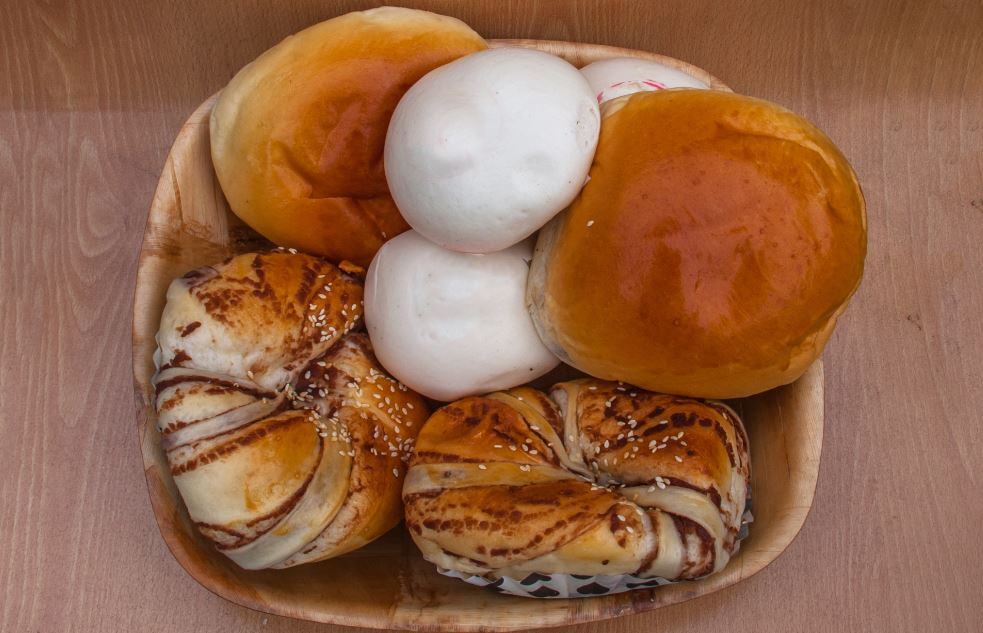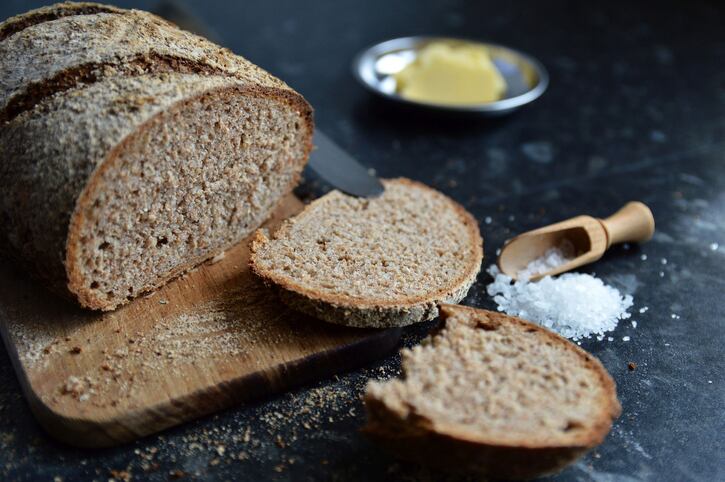Steamed and baked bread are traditional staple foods in China and Western countries respectively. But researchers added: “It is unclear whether different processing methods change the biological functions of foods and how these functions are evaluated in the human body.”
Hence, they sought to study the cytokine network and central metabolic pathway (CMP) network.
Cytokines bind to specific receptors on immune and nonimmune cells through the circulatory system, which forms an intercellular communication network that regulates neuro-immune-endocrine functions and metabolism.
“As far as we know, no research has been conducted on this subject. Understanding the effects of these two staple foods on human physiological functions is important for exploring the effects of food-processing methods on the human body and for dietary intervention to promote the human health.”
The study was published in the journal, Nutrients.
Bread preparation and participants
Both steamed and baked bread were made from the same wheat flour without any additives, dry yeast, and water. The dough was kneaded by hand and left to rise in a fermentation cabinet.
The steamed bread was placed in a steamer basket at 100 °C for 20 minutes while the baked bread was baked in an electric oven at 215 °C for 20 minutes.
A total of 16 healthy participants aged 23 to 25 years, of both genders (8 men, 8 women) were recruited for the study.
The volunteers main staple food was rice, and they rarely ate wheat flour-based food.
Treatment
The treatment experiment lasted for five days where volunteers were placed in a relaxed environment to protect them from stress sources.
On treatment day one, volunteers were provided with the unbiased food (boiled potato, celery cabbage, and edible rape without oil and salt; purified water) and rice (staple food) for three meals. The time for three meals were 0730 (breakfast), 1200 (lunch) and 1730 (dinner). Each meal lasted between 25 to 35 minutes.
On day two of treatment, volunteers were also provided with unbiased food + rice for three meals, and blood was collected as control. Venous blood was collected from each subject at 1430, 1500, and 1530.
On treatment day three, breakfast was the same as the first two days. However, for lunch, the unbiased food + 100 g steamed bread (replacing the rice) were provided, and a blood sample was collected at the corresponding times.
A wash out period of five days was conducted. During this interval, volunteers resumed their daily eating habits.
Treatment day four saw the same meal plan as for day one.
On the last day of treatment, volunteers were given unbiased food + 100 g baked bread for lunch, and a blood sample was collected as above.
The blood samples were used to detect 38 cytokines, 12 metabolic enzymes, glucose, lactate, and nicotinamide adenine dinucleotide (NADH) to compare the cytokine network and CMP network between the two staple foods on immunity and metabolism.
Cytokine network
They found that baked bread significantly increased the concentration of fractalkine (p=0.017), macrophage-derived chemokine (MDC) (p=0.026), and decreased interleukin-1 receptor antagonist (IL-1RA) (p=0.004).
This suggests that baked bread may enhance innate and cellular immune responses, compared with steamed bread.
One reason for this may be due to the chemical changes, researchers believed.
“When baking at higher temperatures, the Maillard reaction and other chemical reactions can occur, and produce harmful components such as acrylamide, and 5-hydroxymethylfurfural. However, during steaming, with its relatively low temperature and high humidity, the above harmful components may not be produced,
“Therefore, we speculate that the exposure of potentially harmful compounds to the intestinal mucosa may be the main reason for the enhanced systemic immune response with the intake of baked bread as compared with steamed bread.”.
According to the metabolic findings, researchers said for people who lived mostly on wheat flour-based foods, baked bread may be helpful for body-weight control, while steamed bread may be more suitable for people suffering from malnutrition or food shortages.
Key findings
The researchers concluded: “Compared with steamed bread, the intake of baked bread enhanced intercellular communication and immune response, increased catabolism, and decreased anabolism. Cytokines may act as signals that regulate metabolism. This study provides novel insights into whether processing methods affect the physiological functions of foods and feasible methods regarding how these functions can be evaluated in the human body.”
Source: Nutrients
https://doi.org/10.3390/nu12010001
“Baked Bread Enhances the Immune Response and the Catabolism in the Human Body in Comparison with Steamed Bread”
Authors: Huisong Wang and Guangchang Pang


